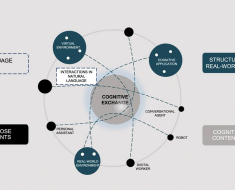
This study aimed to compare the performance of different machine-learning methods in modeling associations between known cognitive risk factors and future dementia cases. A subset of the AGES-Reykjavik Study dataset was analyzed using three machine-learning methods: logistic regression, random forest, and neural networks. Data were collected twice, approximately five years apart. The dataset included information from 1,491 older adults who underwent a cognitive screening process and were considered to have healthy cognition at baseline. Cognitive risk factors included in the models were based on demographics, MRI data, and other health-related data. At follow-up, participants were re-evaluated for dementia using the same cognitive screening process. Various performance metrics for all three machine learning algorithms were assessed. The study results indicate that a random forest algorithm performed better than neural networks and logistic regression in predicting the association between cognitive risk factors and dementia. Compared to more traditional statistical analyses, machine-learning methods have the potential to provide more accurate predictions about which individuals are more likely to develop dementia than others.



